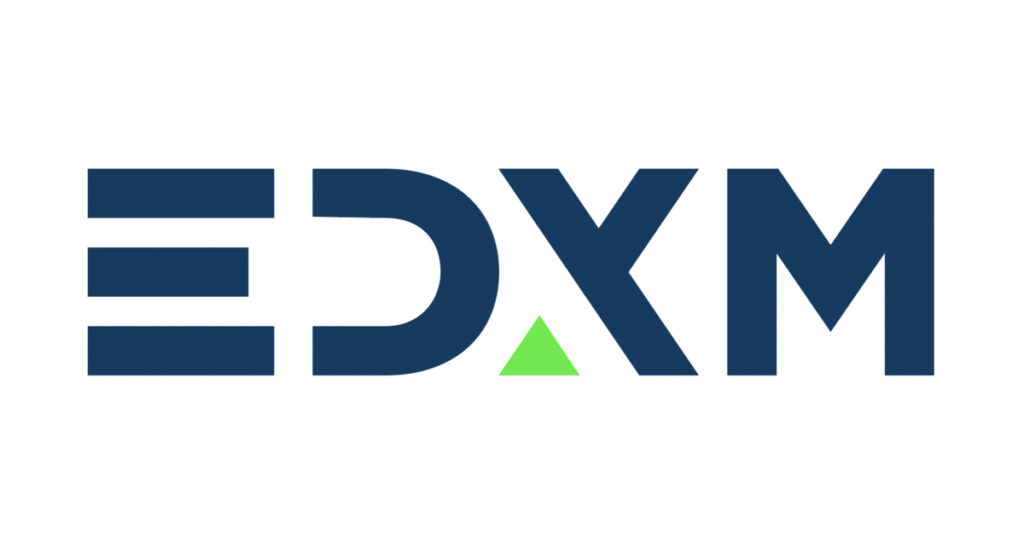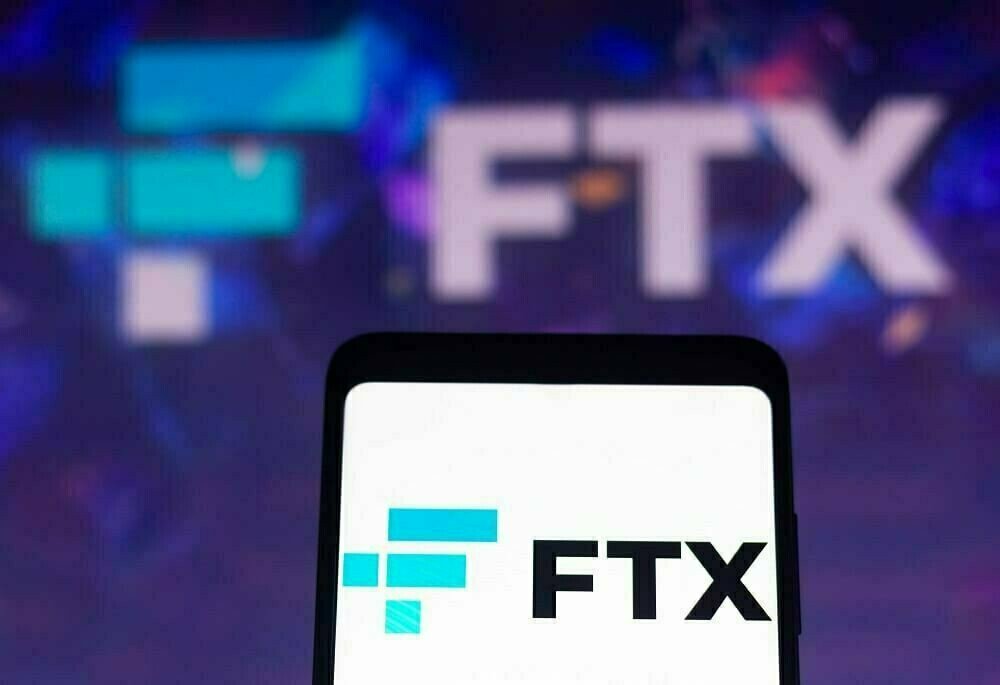The price of Bitcoin (BTC) remained within a narrow trading range between $30,000 and $31,000, showing no significant upward or downward movement, according to data from Cointelegraph Markets Pro and TradingView.
However, market participants started to anticipate a potential breakthrough above resistance levels.
Several traders and analysts expressed optimism about Bitcoin’s future performance.
A popular trader known as Jelle tweeted that Bitcoin’s current price action resembled its breakout in late 2020, suggesting a potential upward trend.
Another prominent analyst, Rekt Capital, pointed out positive signs on monthly timeframes, indicating that Bitcoin was positioning itself for a monthly close above a resistance level that had previously rejected its price.
Michaël van de Poppe, the founder and CEO of trading firm Eight, echoed the positive sentiment, stating that both Bitcoin and altcoins were showing promising movements, suggesting the possibility of another upward leg in the markets.
On the macroeconomic front, market participants were eagerly awaiting the release of major data, including comments on economic policy by Jerome Powell, the chair of the United States Federal Reserve.
The volatility catalyst for risk assets was expected to be the Personal Consumption Expenditures (PCE) figures, which served as Powell’s preferred inflation measurement tool.
Additionally, the options open interest expiry on June 30 attracted attention, as it amounted to a substantial $4.7 billion.
Traders speculated on the potential impact of this expiration on the crypto market, with some expecting spot buying from dealers to hedge their books if the options were rolled into more calls.
Tedtalksmacro, a financial commentator, suggested that there might be limited movement in the crypto market until the expiry of the options open interest.
Overall, while Bitcoin remained range-bound in the short term, market participants showed growing optimism about a potential breakout above resistance levels.
Traders and analysts highlighted similarities to past bullish trends, and the release of macroeconomic data, including PCE figures and the options expiry, was expected to bring potential volatility to the market.
Other Stories:
SEC Commissioner Pushing For ‘Reserved’ Approach to Cryptocurrency Regulation
EDX Cryptocurrency Exchange Prepares to Switch Custody Providers
Bankrupt Crypto Exchange FTX Takes Steps Towards Relaunching as a New Entity
EDX, a recently launched cryptocurrency exchange, is reportedly preparing to switch its custody provider from Paxos Trust to Anchorage Digital.
The exchange, which received support from prominent traditional finance entities like Citadel Securities, Fidelity Digital Assets, and Charles Schwab, operates on a noncustodial business model aimed at eliminating conflicts of interest.
EDX currently facilitates trading in two cryptocurrencies, Bitcoin and Bitcoin Cash.
Notably, Bitcoin Cash has experienced significant growth since the exchange’s inception, with a 70.43% increase over the past week and a remarkable 101.36% surge in the last month.
Following the exchange’s announcement of its partnership with Paxos in October, the United States Securities and Exchange Commission proposed stricter custody regulations for crypto firms.
Paxos, holding a BitLicense from the New York Department of Financial Services, faced an investigation earlier this year for undisclosed reasons.
Additionally, Paxos obtained preliminary conditional approval for a U.S. bank charter from the United States Comptroller of the Currency (OCC) in 2021, but that approval reportedly lapsed by the end of March.
Anchorage Digital, on the other hand, became the first crypto firm to receive a national trust bank charter from the OCC in January 2021.
However, it faced regulatory issues a year later due to Anti-Money Laundering deficiencies and subsequently agreed to a consent order.
Shortly thereafter, Anchorage Digital formed a custody network with prominent crypto exchanges including Binance.US, CoinList, Blockchain.com, Strix Leviathan, and Wintermute.
EDX has plans to introduce EDX Clearing, a clearinghouse designed to settle trades executed on the EDX Markets platform, later this year.
While EDX declined to comment on the change of its custody provider, Anchorage Digital did not respond to requests for comments regarding the matter.
The decision to switch custody providers signifies EDX’s commitment to establishing a secure and compliant infrastructure for its users.
With the support of reputable financial heavyweights and the intention to introduce a clearinghouse, EDX aims to enhance its trading platform and ensure a seamless experience for cryptocurrency traders.
Other Stories:
Bspin Review – Here’s Why You Shouldn’t Gamble With This Bitcoin Casino
Federal Judge Denies Binance’s Motion in SEC Lawsuit
HSBC Launches Cryptocurrency Services, Offering Bitcoin ETFs to Customers
FTX’s attempt to fill a $2 billion gap in its balance sheet has hit a snag as the sale of its $500 million stake in Anthropic, an artificial intelligence startup, has been temporarily halted.
According to Bloomberg’s sources on June 27, Parella Weinberg Partners, FTX’s advisory investment bank, decided to pause the sale despite the interest shown by multiple parties.
The sale of FTX’s stake in Anthropic would have been a significant step towards recovering funds for the bankrupt crypto exchange.
FTX’s restructuring chief, John Ray, stated in a report on June 26 that around $8.7 billion in user funds were misused, but they have managed to recover approximately $7 billion of that amount.
Before the sale was paused, several potential buyers had expressed interest in acquiring FTX’s stake in Anthropic. In early June, Semafor reported that FTX was actively promoting the AI firm to potential investors.
FTX had initially acquired $500 million worth of Anthropic stock prior to its bankruptcy in November, and with the current boom in the AI industry, the stake is expected to have significantly increased in value.
Anthropic itself has experienced substantial growth recently. In its most recent funding round, the company achieved a reported valuation of $4.6 billion and secured $450 million in investments.
Anthropic’s main product, an AI chatbot named “Claude,” has versatile applications in sales, customer service, and web searches.
The news of the sale pause comes shortly after Ray’s report revealed that FTX still had $2 billion to recover in assets.
The report highlighted the alleged misuse of customer funds, including thousands of dollars in grants for non-crypto-related projects, investments in venture capital firms.
A $243 million real estate portfolio in the Bahamas, and donations to non-profit organizations and a political action committee operated by Gabe Bankman-Fried, the younger brother of FTX co-founder Sam Bankman-Fried.
Cointelegraph reached out to Parella Weinberg Partners and Anthropic for comment but has not received an immediate response.
The delay in selling FTX’s stake in Anthropic adds another hurdle to the crypto exchange’s efforts to address its financial shortfall and rebuild its balance sheet.
Other Stories:
HSBC Launches Cryptocurrency Services, Offering Bitcoin ETFs to Customers
Japan Grants Tax Exemption on Unrealized Crypto Gains for Token Issuers
Bspin Review – Here’s Why You Shouldn’t Gamble With This Bitcoin Casino
Bitcoin miners are experiencing a significant surge in revenue sent to exchanges, according to a tweet by Glassnode, an on-chain analytics platform.
The platform reported that miners had sent a record-breaking $128 million to exchanges in the past week, which amounts to a staggering 315% of their daily revenue.
While there have been previous spikes in miner revenue during the 2021 bull run, this recent surge surpasses them all by a considerable margin.
Typically, miners send their Bitcoin profits to exchanges to cover expenses and secure their profits. Given that Bitcoin reached its highest price of the year, touching $31,185 on June 24, this past week presented an opportune time for miners to cash out.
CryptoQuant co-founder and CEO Ki Young Ju echoed this sentiment, noting that the current price-to-earnings ratio was attractive for miners to sell.
However, despite the increased activity from miners, Bitcoin’s price remains relatively stable above the $30,000 threshold.
The $31,000 price level poses a significant resistance for Bitcoin, as it failed to break it both in mid-April and late June.
If bulls are unable to make progress and miners continue liquidating their holdings, the possibility of future losses looms.
Although Bitcoin’s price has surged by over 88% year-to-date, miners still face numerous challenges.
Profitability has dropped by more than 30% since July of the previous year and has plummeted over 80% since the peak of the 2021 bull market.
Moreover, record hash rates of 377 EH/s and peak difficulty levels further compound the obstacles faced by Bitcoin miners.
With rising hash rates, difficulty levels, and energy costs, mining profitability has been negatively impacted.
Consequently, miners may reluctantly need to sell their hard-earned Bitcoin to cover expenses, a situation that is far from ideal.
Other Stories:
SYS Labs Announces Launch of Rollux EVM Layer-2 Solution
HSBC Launches Cryptocurrency Services, Offering Bitcoin ETFs to Customers
Bspin Review – Here’s Why You Shouldn’t Gamble With This Bitcoin Casino
Nevada’s Financial Institutions Division has taken further action against crypto custodian Prime Trust, following the filing of a cease and desist order, by petitioning for the appointment of a receiver.
In a recent filing on June 26, the regulator sought a temporary restraining order and the appointment of a receiver to Prime Trust Technologies, which includes its crypto custodian division.
The decision for receivership was agreed upon by Prime Trust due to the significant deficit between its assets and liabilities.
The petition emphasized the need for immediate action, citing the risk of “irreparable harm” to customers, the public, and the confidence in the cryptocurrency market.
The regulator expressed concerns over Prime Trust’s financial condition, stating that the custodian was unsafe and possibly insolvent.
The situation was expected to worsen as customers continued to withdraw from Prime Trust.
According to the filing, Prime Trust had engaged Fireblocks in 2019 to store all its crypto assets and underwent a change in management in 2020.
In January 2021, the custodian reintroduced legacy wallet forwarding addresses to customers due to limitations with Fireblocks.
Since December 2021, Prime Trust has been unable to access its users’ legacy wallets and had been purchasing crypto using customer funds.
The petition revealed that Prime Trust owed over $85 million in fiat currency to its clients but had only approximately $2.9 million available at the time of filing.
In terms of digital assets, the custodian’s liability amounted to over $69.5 million, with holdings of around $68.6 million.
The regulatory action came after Nevada’s financial watchdog issued a cease and desist order on June 21, citing Prime Trust’s deteriorating financial condition and its inability to fulfill customer withdrawals due to a shortfall of funds.
Following this development, BitGo, a wallet infrastructure provider and digital asset custodian, announced on June 22 that it would cancel its planned acquisition of Prime Trust.
The appointment of a receiver and the initiation of legal proceedings against Prime Trust highlight the seriousness of the situation.
The financial condition of the custodian has raised concerns among regulators and industry participants, who are keen to safeguard the interests of customers and maintain trust in the cryptocurrency market.
Other Stories:
Japan Grants Tax Exemption on Unrealized Crypto Gains for Token Issuers
HSBC Launches Cryptocurrency Services, Offering Bitcoin ETFs to Customers
Bspin Review – Here’s Why You Shouldn’t Gamble With This Bitcoin Casino
Artificial intelligence (AI) has been widely discussed in relation to its potential integration with the cryptocurrency industry, particularly regarding how it can help combat scams.
However, experts are overlooking the fact that AI itself could have the opposite effect. Meta, for instance, recently warned that hackers were exploiting OpenAI’s ChatGPT to gain unauthorized access to users’ Facebook accounts.
In just March and April alone, Meta reported blocking over 1,000 malicious links disguised as ChatGPT extensions.
The platform even labeled ChatGPT as “the new crypto” in the eyes of scammers. Furthermore, a search for keywords like “ChatGPT” or “OpenAI” on DEXTools, an interactive crypto trading platform, reveals more than 700 token trading pairs mentioning these terms.
This indicates that scammers are leveraging the hype around AI tools to create tokens, despite OpenAI not officially entering the blockchain world.
Social media platforms have become popular avenues for promoting fraudulent cryptocurrencies online. Scammers exploit the extensive reach and influence of these platforms to quickly amass a significant following.
By utilizing AI-powered tools, they can further amplify their reach and create an apparently loyal fanbase consisting of thousands of people.
These fake accounts and interactions create an illusion of credibility and popularity for their scam projects.
Much of the cryptocurrency industry relies on social proof-of-work, assuming that popular projects with large followings are legitimate and trustworthy.
Investors and newcomers tend to trust projects with substantial and loyal online followings, assuming that others have done thorough research before investing.
However, AI poses a challenge to this assumption and undermines social proof-of-work.
Merely having thousands of likes and genuine-looking comments does not guarantee the legitimacy of a project. AI opens up various attack vectors, including “pig butchering” scams where AI instances spend days befriending vulnerable individuals, only to scam them later.
The advancement of AI technology has empowered scammers to automate and scale fraudulent activities, potentially targeting vulnerable individuals in the crypto space.
Scammers may deploy AI-driven chatbots or virtual assistants to engage with individuals, offer investment advice, promote fake tokens and initial coin offerings, or present high-yield investment opportunities.
These AI scams are particularly dangerous because they can flawlessly mimic human-like conversations. Furthermore, by leveraging social media platforms and AI-generated content, scammers orchestrate elaborate pump-and-dump schemes, artificially inflating token values before selling off their holdings for significant profits, leaving many investors at a loss.
Investors have long been cautioned about deepfake crypto scams, which utilize AI to create realistic online content by swapping faces in videos and photos or altering audio to make it seem as if influencers or well-known personalities are endorsing scam projects.
One notable deepfake that impacted the crypto industry was a video of former FTX CEO Sam Bankman-Fried directing users to a malicious website promising to double their crypto.
Earlier this year, in March 2023, an AI project called Harvest Keeper scammed users out of approximately $1 million. Around the same time, projects emerged on Twitter claiming to be “CryptoGPT.”
However, on a positive note, AI also has the potential to automate mundane aspects of crypto development, serving as a valuable tool for blockchain experts.
AI technology simplifies essential project requirements such as setting up Solidity environments or generating base code.
This will significantly lower the entry barrier, shifting the focus of the crypto industry from development skills to the genuine utility of ideas.
In some cases, AI can democratize processes traditionally accessible only to a select group, such as well-trained senior developers.
With advanced development tools and launchpads available to everyone in the crypto space, possibilities become limitless.
However, as AI makes it easier for scammers to operate, users must exercise caution and due diligence before investing in a project. It is essential to watch out.
Other Stories:
Bitcoin ETF Fever Returns: ProShares’ BITO Sees Largest Inflow in a Year
Bspin Casino is an online gaming platform that caters to users worldwide. Known for its expansive games roster and security features, it is emerging as one of the premier destinations for online gambling enthusiasts.
Bspin Casino boasts an impressive range of gaming options that include table games, slots, and live casino games, delivered by some of the industry’s best software developers.
Bitcoin-Only Casino
One unique aspect that separates Bspin from its competitors is its commitment to Bitcoin. The casino operates on a Bitcoin-only basis, which not only makes it distinct but also makes it an appealing option for players who prioritize privacy and security. The blockchain-based transactions facilitated by Bitcoin ensure that player activities remain anonymous, thus providing a high level of confidentiality. Additionally, Bitcoin transactions are instant, eliminating the waiting times typically associated with conventional casino payment methods.
Bspin Casino takes pride in its extensive game library that offers a variety of games to cater to the tastes of all players. The games are provided by renowned developers in the industry, including Pragmatic Play, GameArt, Habanero, and Evolution Gaming. Slots are by far the most populated category, featuring a diversity of themes, graphics, and gameplay mechanics.
You’ll find classic 3-reel slots for those who like simplicity and nostalgia, and the latest 5-reel video slots for those who prefer cutting-edge graphics and immersive gameplay. Progressive jackpot slots are also available for players chasing life-changing prizes.
Table game enthusiasts are also well catered for, with a wide array of classics such as Blackjack, Baccarat, Roulette, and Poker available in multiple variants. These games are powered by sophisticated RNG software, ensuring fair and unpredictable outcomes. The live dealer section adds an extra layer of immersion, allowing players to engage with professional croupiers and experience the thrill of a land-based casino from the comfort of their home.
Mobile App
Perhaps one of the most commendable aspects of Bspin Casino is its mobile-friendly design. In this day and age, the convenience of being able to play on the go is a significant factor for many online gamblers.
Bspin Casino provides a seamless mobile experience, making all games accessible via mobile devices without compromising on functionality or graphics quality. The site is intuitively designed, ensuring that players can navigate easily and find their favorite games within seconds.
Security is a top priority at Bspin Casino. The platform uses advanced SSL encryption to protect player data, ensuring that personal and financial information remains secure. The casino also adheres to strict privacy policies, reinforcing its commitment to player confidentiality. The use of Bitcoin further enhances security, as it ensures that transactions are both encrypted and untraceable.
Bspin Casino also excels in customer service, with a dedicated support team available 24/7 to assist players with any queries or issues. The support team can be contacted through various channels, including live chat and email, ensuring that players are never left in the dark. The casino also has a comprehensive FAQ section where players can find answers to common questions.
When it comes to bonuses and promotions, Bspin doesn’t disappoint. New players are welcomed with a generous bonus package, while regular players are rewarded with various ongoing promotions. The casino also features a loyalty program, where players can earn points for every bet they place and redeem these points for bonuses or cash rewards.
Bspin Casino is an impressive online gambling platform that delivers on multiple fronts. Its Bitcoin-only operation might be a sticking point for some, but for those who value privacy and security, it’s a distinct advantage. With an expansive game library, user-friendly design, robust security measures, and excellent customer service, Bspin Casino is a top choice for both new and experienced players. Whether you’re a fan of slots, table games, or live dealer games, Bspin Casino has something to offer for everyone.
Should You Gamble With Bspin Casino?
Several users have reported issues withdrawing their winnings or part of their initial deposits with Bspin Casino, indicating that this crypto casino is a scam. Furthermore, Bspin has been accused of running rigged games, with exceptionally low win rates and payouts.
Therefore, it is not advisable to gamble with Bspin Casino.
Other Stories:
Federal Judge Denies Binance’s Motion in SEC Lawsuit
Bitcoin Holds Steady Around $30,500, Fueling Hopes for Institutional Demand
HSBC Launches Cryptocurrency Services, Offering Bitcoin ETFs to Customers
Amazon’s cloud division, AWS, is investing $100 million to establish the AWS Generative AI Innovation Center, aiming to catch up with market leaders Microsoft and Google in the field of generative artificial intelligence (AI).
This center will serve as a platform connecting Amazon’s AI and machine learning experts with clients interested in developing applications based on cutting-edge generative AI technologies.
Generative AI employs algorithms to generate diverse content, ranging from audio and code to images, texts, simulations, and videos.
Several prominent companies, including Highspot, Twilio, Ryanair, and Lonely Planet, have been named as early adopters of the innovation center.
By establishing this facility, Amazon anticipates a surge in the sales of its cloud services, especially considering the intensifying competition in the cloud infrastructure market.
A recent study by Synergy Research Group analyzed the leading cloud services providers, revealing that enterprise spending on cloud solutions worldwide surpassed $63 billion in the first quarter of 2023, marking a 20% increase compared to the same period last year.
Microsoft and Google experienced the most substantial year-over-year growth rates, with 23% and 10% gains in global market share, respectively.
Amazon, as the dominant player in cloud infrastructure, maintained its 32% market share in Q1.
During Bloomberg’s Tech Summit, AWS CEO Adam Selipsky expressed his intention to deploy internal AWS experts to aid various AWS customers, particularly those with a substantial AWS presence, in advancing their generative AI efforts.
Selipsky emphasized the aim to move beyond mere discussions and assist clients in implementing generative AI solutions effectively.
In an effort to compete with major tech rivals, Amazon recently introduced Bedrock, an AI solution enabling customers to develop their own models akin to ChatGPT.
The company also unveiled an upcoming project named Titan, which incorporates two foundational models developed by Amazon Machine Learning.
Furthermore, job postings on LinkedIn indicate that Amazon is preparing to integrate an AI-powered “search” feature with a ChatGPT-like interface into its online web store.
This strategic move will enhance the customer experience by leveraging AI capabilities to provide more efficient and personalized search results.
With the establishment of the AWS Generative AI Innovation Center, Amazon is taking significant steps to close the gap with Microsoft and Google in the generative AI market.
By leveraging its expertise and resources, Amazon aims to capitalize on the growing demand for cloud services in an increasingly competitive landscape.
Other Stories:
Creditor Pledges Tokenized FTX Claim as Collateral for Groundbreaking DeFi Loan
ASX’s Failed Blockchain Upgrade Sparks Blame Game Between Digital Asset and Exchange
Simon Callaghan has been appointed as the new CEO of Blockchain Australia, the peak industry body for cryptocurrency in the country.
Callaghan’s vision for his role is to hasten the implementation of crypto regulations, using the models from the UK, Hong Kong, and Singapore as templates, and eschewing the American regulatory approach.
The U.S. approach, dubbed ‘regulation by enforcement,’ equates to branding 68 tokens as securities and prosecuting the world’s largest exchanges.
Callaghan opposes this methodology, stating it’s akin to “having a hammer and seeing everything as a nail.”
He stressed the need for a different and more balanced approach in Australia during his announcement at Blockchain Week.
Callaghan, formerly the digital assets program lead for Cambridge University and a co-founder of MOOPS Tech, will represent the association’s 112 members.
These members, including Binance Australia, Circle, Ripple, and Mastercard, have been calling for clear and transparent regulation.
According to Callaghan, these businesses want to know the parameters to effectively operate, build technologies, and create jobs.
The Australian government, unlike the U.S., has not assumed a hardline position on crypto. The Treasury is presently conducting a ‘token mapping exercise’ to classify digital assets before legislating.
Callaghan applauded the government’s considered approach but urged inspiration from Singapore, Hong Kong, and the UK, as they balance innovation and consumer protection in their regulations.
Recent reports indicate Hong Kong is pressuring banks to accept crypto exchanges as clients to attract global crypto firms. Callaghan praised this approach, calling it the ‘right one.’
There has been resistance from some Australian banks due to the perceived increase in financial scams related to crypto.
Callaghan dismissed the notion that all crypto-related activities are fraudulent and confirmed upcoming meetings with banks to discuss their concerns.
He also supports the ability of crypto firms to contest debanking decisions, as recommended in a 2021 Australian Senate committee report.
Other Stories:
ASX’s Failed Blockchain Upgrade Sparks Blame Game Between Digital Asset and Exchange
Creditor Pledges Tokenized FTX Claim as Collateral for Groundbreaking DeFi Loan
$PEPE, the meme-inspired cryptocurrency, has witnessed a remarkable surge of nearly 70% in the past week, fueled by the active participation of cryptocurrency whales.
This surge in price has positioned $PEPE ahead of rival meme tokens like Dogecoin ($DOGE) and Shiba Inu ($SHIB) amidst a broader recovery in the cryptocurrency market.
On-chain analytics firm Santiment reported a 61% surge in $PEPE within 48 hours, coinciding with a significant increase in whale transactions of $100,000 or more.
This surge in volume marked the highest observed on the $PEPE network in the last six weeks, indicating strong engagement from influential investors.
While the overall cryptocurrency market was experiencing a rally, thanks to major financial institutions submitting spot Bitcoin exchange-traded fund (ETF) applications, $PEPE’s growth surpassed that of other meme tokens.
Prominent players like BlackRock, Invesco, WisdomTree, and Germany’s Deutsche Bank have also contributed to renewed investor optimism by applying for digital asset custody licenses.
The surge in price has propelled $PEPE’s market capitalization to over $500 million, making it the 64th largest cryptocurrency by market capitalization.
It now sits ahead of Bitcoin SV ($BSV) and trails behind Neo ($NEO), further solidifying its position within the crypto space.
Despite concerns surrounding the contract owner’s ability to modify transaction taxes and blacklist functions, $PEPE has experienced a phenomenal boom since its entry into the market on April 17, 2023.
Being listed on multiple centralized exchanges has provided $PEPE with substantial traction among investors, propelling it to top 100 digital asset status.
One fortunate cryptocurrency investor managed to turn a modest investment of 0.125 ETH in $PEPE into an astonishing $1.14 million in just a few days, showcasing the immense potential for gains in well-timed cryptocurrency investments.
The surge of $PEPE highlights the influence of meme-inspired tokens in the cryptocurrency market. With significant involvement from cryptocurrency whales and its outperformance of rival meme tokens, $PEPE has emerged as a formidable player.
As institutional interest in cryptocurrencies continues to grow, supported by major financial institutions’ pursuit of digital asset-related licenses, the future of $PEPE and other meme tokens appears promising. Investors remain captivated by the potential for substantial gains in this dynamic and rapidly evolving market.
Other Stories:
ECB Executive Slams Cryptocurrencies as Platforms for Gambling, Calls for Regulatory Safeguards
Sequoia Capital Defends FTX Investment Despite Bankruptcy
Etherscan Launches AI-Powered Code Reader, Polygon Proposes zkEVM Upgrade












